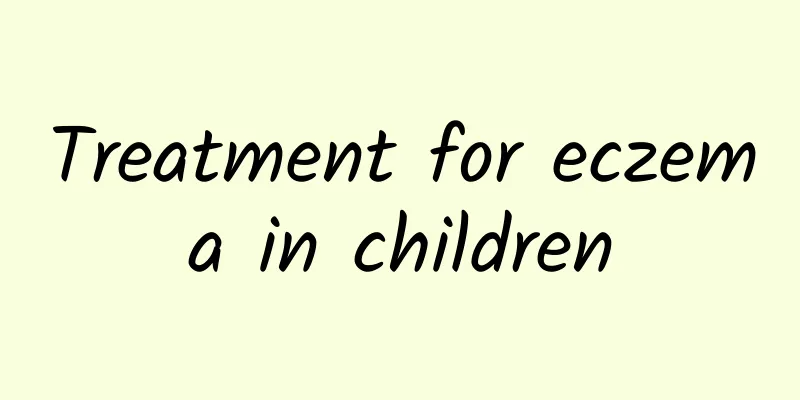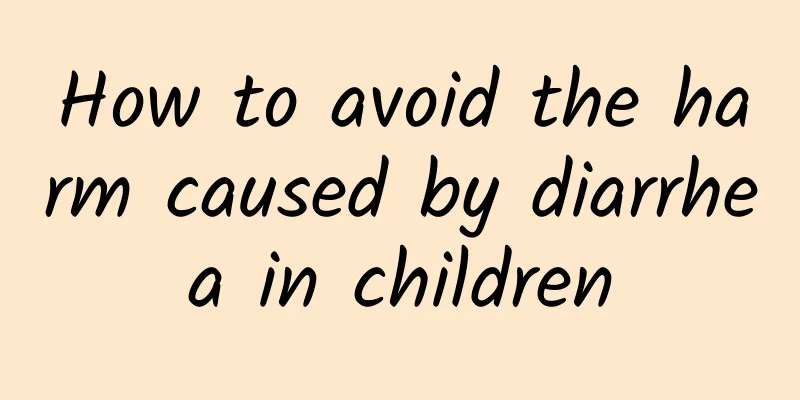Treatment for eczema in children

|
Children with eczema require careful care from their parents. If the condition is serious, they should seek medical attention as soon as possible to avoid delaying treatment. Eczema is a common skin problem in infants and young children, usually manifested as skin redness, itching, exudation or scabs, and many babies may develop eczema a few weeks after birth. Although the specific cause of eczema is not completely clear, it is closely related to genetics, immature immune system and environmental stimulation, such as allergens, weather changes or excessively dry skin. There are a variety of care options for eczema that can help relieve your baby's discomfort. For mild eczema, keeping the skin clean and moisturized is key. Use warm water every day to bathe your baby, but not too hot, and keep the bath time to 5-10 minutes each time to avoid irritating the skin. Immediately after the bath, apply a children's moisturizer all over the body to lock in moisture. If your baby has skin allergies, choose a hypoallergenic, fragrance-free moisturizer. Keep your baby away from items that may cause allergies, such as animal hair, chemical cleaners, or certain clothing materials. There are also some precautions in terms of diet and environment that may help improve eczema. Breastfeeding mothers can observe whether their diet contains foods that their babies may be allergic to (such as dairy products, seafood, etc.); after starting complementary foods, they can gradually try new ingredients and pay attention to whether there are signs of worsening eczema. The air at home should be kept moist, and a humidifier can be used appropriately to avoid high room temperatures. At the same time, it is best to choose pure cotton materials for baby's close-fitting clothes, which are both breathable and soft to avoid irritating delicate skin. If your baby's eczema is severe, such as large areas of redness and swelling, exudation, or itching that causes sleeplessness at night, you need to take your baby to the hospital for evaluation. The doctor may prescribe topical ointments (such as steroid-containing drugs) or antihistamines to relieve severe symptoms. Parents should use the medication strictly according to the doctor's instructions and avoid increasing or decreasing the dosage at will to avoid harming the baby's skin. |
<<: What is the cause of recurrent jaundice in newborns?
>>: Daily care of acute laryngitis in children
Recommend
What to do about breast milk jaundice
Breast milk jaundice is a common type of neonatal...
What is the cause of polio?
Polio is mainly caused by polio virus infection, ...
Where is the best hospital for jaundice?
Newborn babies may develop jaundice within a few ...
What are the Chinese medicines for treating children's colds?
Traditional Chinese medicine for treating childre...
What are the treatments for jaundice in adults?
Treatments for jaundice in adults include elimina...
Treatment for eczema in children
Children with eczema require careful care from th...
A two-pronged approach of Chinese and Western medicine to control neonatal jaundice. What medicine is good for neonatal jaundice?
The treatment of neonatal jaundice is very critic...
What should I do if my child's tonsils are repeatedly inflamed? How harmful is it if my child's tonsils are repeatedly inflamed?
Children often catch colds and fevers due to tons...
How to prevent pneumonia in children? Can using air conditioning in summer cause pneumonia in children?
As the weather gets hotter, people have to hide i...
How to effectively prevent pneumonia in children
Neonatal pneumonia is a common disease, so it is ...
What are the dangers of kidney disease in children?
Many people think that kidney disease is somethin...
What are the treatments for muscular dystrophy?
Muscular dystrophy is more common in life and has...
Can polio be cured in hospitals?
Polio is an acute infectious disease with a very ...
What tests should be done for diarrhea in children
In life, pediatric diarrhea is a common disease, ...
What are the folk remedies for treating children's cough? Introduction to dietary therapy for children's cough
Children's cough has always been one of the b...









